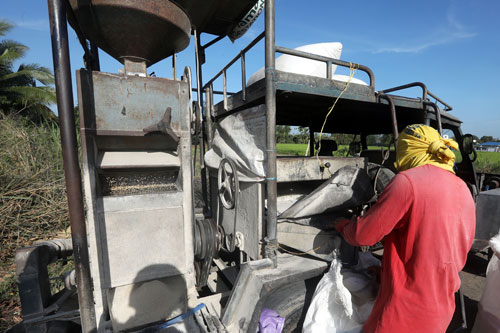
The Philippine Center for Postharvest Development and Mechanization (PhilMech) will include additional drying and milling facilities for the Rice Competitiveness Enhancement Fund (RCEF) mechanization program this year to enable a complete value chain in the rice sector.
This is because previous implementations of the funds were utilized mostly for technologies for land preparation and rice production, PhilMech said.
In the past, most technologies provided by PhilMech to beneficiary farmers under the RCEF program included four-wheel tractors, hand tractors, floating tillers, disc plow and harrows, precision seeders, walk-behind transplanters, riding-type transplanters, combine harvesters, reapers and threshers, among others.
“In the next months to come, PhilMech will provide rice processing and drying equipment to more qualified farmers’ cooperatives and associations and local government units and the acquisition of the processing and drying facilities will be included in the P5 billion allocation under RCEF for 2022,” Dionisio Alvindia, PhilMech executive director, said in a briefing yesterday.
“PhilMech will also sustain the distribution of farm machines from crop establishment to harvesting, as this is mandated under the Rice Tariffication Law,” he added.
Alvindia said PhilMech’s bids and award committee started last month the procurement process for the batch of farm machines covered by the P5 billion allocation for this year.
“We are also targeting to deliver all the to-be procured production technologies with this year but the machines for the establishment of postharvest facilities, particularly milling and drying facilities, may spill over the first quarter of 2023 since these technologies require constructions and various testing to ensure that these will be functional or operational,” Alvindia said.
According to PhilMech, an arrangement was also set up with the Department of Agriculture (DA) as under RCEF, the former can only provide machine and equipment and the warehouses are not included but are needed to house the dryers and rice mills.
Alvindia said the DA agreed to provide funding and to construct the warehouses while PhilMech will provide the specifications especially on the height and space requirements.
PhilMech is the government agency tasked to lead the country’s agricultural and fishery mechanization programs by developing protocols and processes. (Jed Macapagal, Malaya Business Insight)
